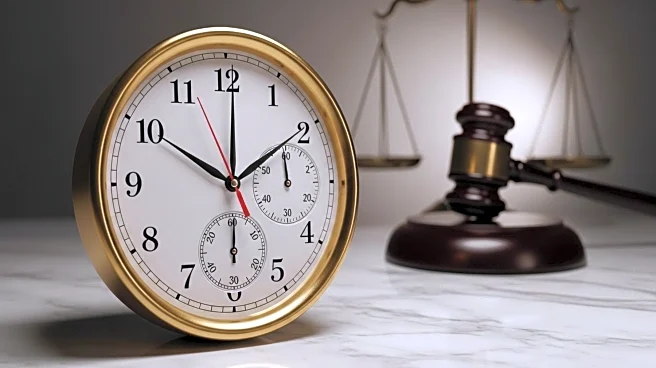What's Happening?
The U.S. Court of Appeals for the Second Circuit has issued a significant ruling in the case of Buller v. Commissioner of Internal Revenue. The court reversed a previous decision regarding the 90-day deadline for filing a petition in the United States Tax Court under Section 6213(a) of the Internal Revenue Code. The ruling determined that this deadline is not jurisdictional, meaning it can be subject to equitable tolling. This decision alters the procedural landscape for taxpayers who may miss the filing deadline due to extraordinary circumstances, allowing them more flexibility in seeking relief.
Why It's Important?
This ruling is crucial for taxpayers and tax professionals as it provides a potential avenue for relief in cases where the filing deadline is missed due to unforeseen circumstances. The decision could lead to increased litigation as taxpayers seek to apply equitable tolling to their cases. It also impacts the IRS's enforcement capabilities, potentially leading to more cases being heard in tax court. This change may influence tax policy and procedures, prompting adjustments in how deadlines are managed and communicated to taxpayers.
What's Next?
Following this ruling, taxpayers who have missed the filing deadline may consider pursuing equitable tolling in their cases. Legal professionals and tax advisors will need to reassess their strategies and advise clients on the implications of this decision. The IRS may need to update its guidelines and training for staff to accommodate this change in procedure. Additionally, further legal challenges could arise as courts interpret and apply the concept of equitable tolling in tax cases.










